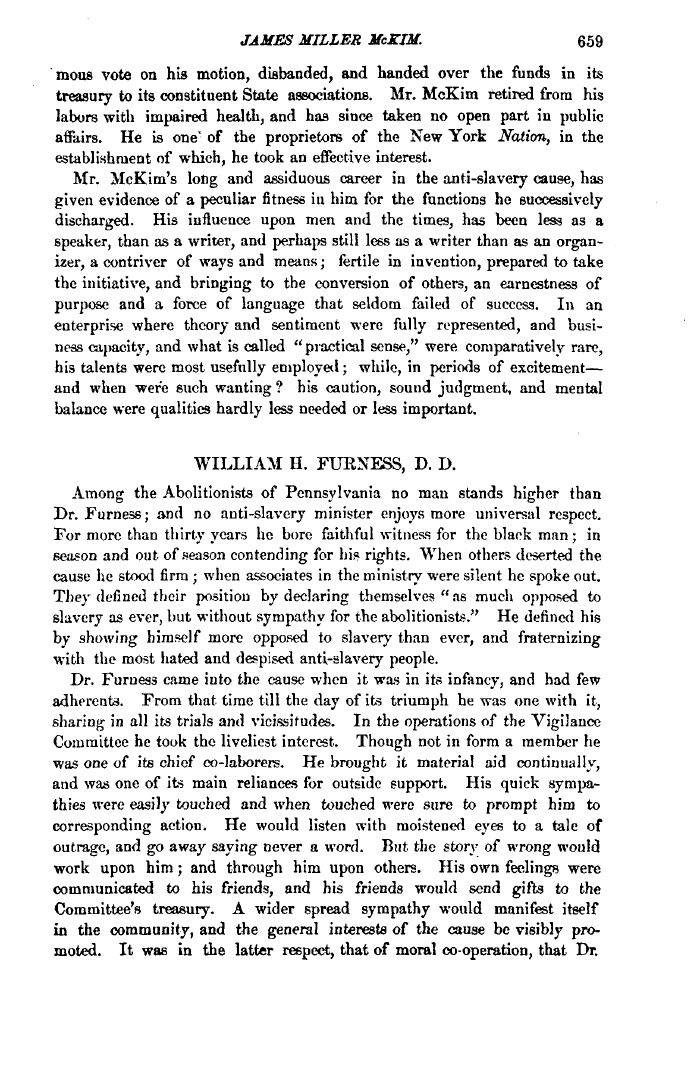 |
||||
 |
||||
| JAMES MILLER XcKIM. 659 moos vote on his motion, disbanded, and handed over the funds in its treasury to its constituent State associations. Mr. McKim retired from his labors with impaired health, and has since taken no open part in public affairs. He is one" of the proprietors of the New York Nation, in the establishment of which, he took an effective interest. Mr. McKim's long and assiduous career in the anti-slavery cause, has given evidence of a peculiar fitness in him for the functions he successively discharged. His influence upon men and the times, has been less as a speaker, than as a writer, and perhaps still less as a writer than as an organizer, a contriver of ways and means; fertile in invention, prepared to take the initiative, and bringing to the conversion of others, an earnestness of purpose and a force of language that seldom failed of success. In an enterprise where theory and sentiment were fully represented, and business capacity, and what is called " practical sense," were comparatively rare, his talents were most usefully employed ; while, in periods of excitement— and when were such wanting? his caution, sound judgment, and mental balance were qualities hardly less needed or less important. WILLIAM II. FURNESS, D. D. Among the Abolitionists of Pennsylvania no man stands higher than Dr. Furness; and no anti-slavery minister enjoys more universal respect. For more than thirty years he bore faithful witness for the black man; in season and out of season contending for his rights. When others deserted the cause he stood firm ; when associates in the ministry were silent he spoke out. They defined their position by declaring themselves " as much o;i]K>sed to slavery as ever, but without sympathy for the abolitioniste." He defined his by showing himself more opposed to slavery than ever, and fraternizing with the most hated and despised anti-slavery people. Dr. Furness came into the cause when it was in its infancy, and had few adherents. From that time till the day of its triumph he was one with it, sharing in all its trials and vicissitudes. In the operations of the Vigilance Committee he took the liveliest interest. Though not in form a member he was one of its chief co-laborere. He brought it material aid contiuualK-, and was one of its main reliances for outside support. His quick sympathies were easily touched and when touched were sure to prompt him to corresponding action. He would listen with moistened eyes to a tale of outrage, and go away saying never a word. But the story of wrong would work upon him; and through him upon others. His own feelings were communicated to his friends, and his friends would send gifts to the Committee's treasury. A wider spread sympathy would manifest itself in the community, and the general interests of the cause be visibly promoted. It was in the latter respect, that of moral co-operation, that Dr. |